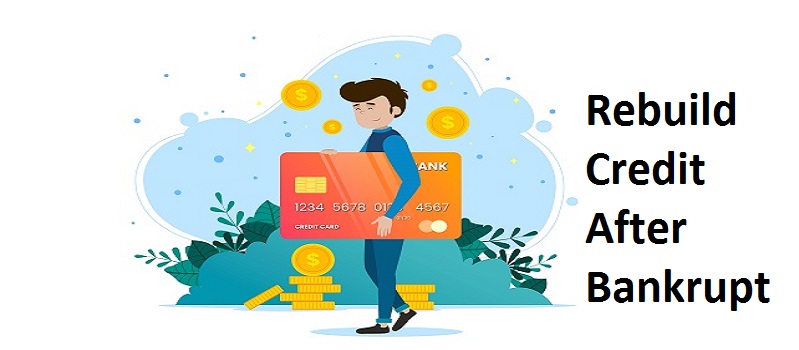
Bankruptcy is a severe process that significantly affects your finances and your ability to take loans further. However, it is an unfortunate event to encounter in one's life. Sometimes it is unavoidable and leaves a lasting impact on finances.
A bankruptcy status stays on the credit report for around 7-10 years, and its impact fades away with time. Your credit score may not be bad as you believe it to be.
And the good news is you can rebuild credit even after undergoing a severe loss.
However, you may find it hard to believe facts, but some individuals encounter improvement in credit in the bankruptcy phase because bankruptcy discharges them of their debts.
If you are on the journey to start again and eliminate your bankruptcy status, begin by evaluating your credit report.
Analyzing the parameters that help build and affect credit can help you be mindful while taking out personal loans in Ireland for bad credit. You will spot errors that are affecting your credibility to take loans further.
Instead of investing time in getting funds right away, focus on building your credit by ensuring timely meeting payments. Payment history and consistency make up for 35% of the total credibility and credit score. Therefore, building your credit is one of the ideal ways to gain credibility in the eyes of creditors.
The next step to start on the right foot while building credit is to apply for new savings and check account. It should help reduce monthly banking fees and generate good interest earnings.
After running into bankruptcy, you may find it hard to spend on entertainment for a while, and it is wise to do so. Opening fresh accounts is all about re-stabilizing your finances and building a healthy credit report and score.
After using a secured credit card and showing new financial habits, it is time to apply for a new line of credit. While considering distinct lines of credit or new credit cards, card issuers may levy strict bankruptcy eligibility conditions that require card applicants to be bankruptcy-free for a certain number of years before the final approval.
Thus, it is important to read the letters mentioned in the fine print before finally agreeing to the agreement. However, it is important to note that many lenders act leniently with bankrupt borrowers. Once, thus needs to be mindful of the credit terms before finally applying for the credit cards.
If you struggle with taking out personal loans in Ireland for bad credit, then you can consider signing off a co-signer on a loan.
A co-signer helps a borrower when the borrower's credit score doesn't qualify for the particular loan. Co-signers help bridge this gap by supporting him with his good credit rating or score. It improves chances for the borrower to gain credibility and approval for the loan.
In addition, the co-signer agrees to pay the remaining repayments if the borrower cannot make them. Therefore, a co-signer is someone close- like mother, father, brother, or a really close friend. This may affect the cosigner's credit score as well.
Thus, if you are extremely in need of borrowing funds from a creditor and your credit score and bankruptcy status don't permit you so, then you can consider a co-signer. Just be mindful of choosing one for your situation. Choose someone you trust and have full faith in.
Lenders consider your job profile before lending or granting funds for your needs. Thus, having a stable job profile helps the creditors rely on your credibility to make timely repayments. So, if you are used to switching jobs, which is okay, but doing so frequently can affect your credibility of securing a loan from private money lenders in Ireland.
When you are trying to secure a loan from creditors given your bankruptcy status, having inconsistent income or employment status can severely affect your chances. Thus, make payments timely and regularly as much as possible. Restricting job-hopping can prevent you from losing out on a great credit opportunity.
Securing a loan after being declared bankrupt might require good homework on your part. From mending your credit to timely payments and following a budget, everything needs to be followed with the aim of re-building the desired credit score.
When researching lenders, watch out for the criteria. If you are self-employed or side hustle, you may be required to provide income proof. The more documentation and proof you can provide about your income, the better it is.
A good rule of thumb while building credit habits is adopting and maintaining good credit habits. Moreover, to gain approval from the creditors and take out personal loans in Ireland for bad credit, maintain a good debt-to-income ratio, and keep your Debt-to-Income low. Thus, if you rack up a huge credit card bill over the holidays. Avoid it at all costs.
You need to keep your credit usage to 30%. Thus, if you are in the habit of missing payments, then you need to restrict this and stay on top of the credit. You can do so by making regular payments, avoiding taking unnecessary loans, signing up for free credit monitoring services, using credit cards wisely.
Are you file for bankruptcy, there is no magic wheel that can turn your wheel of finance in your court? Building credit and normalizing the credit report can take from 12 to 18 months post-bankruptcy.
Avoid taking loans and credit cards might feel like your best bet after bankruptcy, and if you don't have any credit previously, it can be nearly impossible to add any positive to your credit file. Monitoring your credit and paying bills timely can eventually help improve your credit report after bankruptcy.